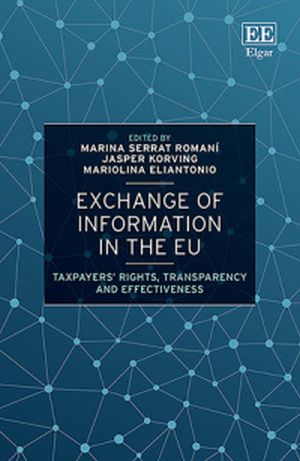
This timely book provides a holistic analysis of the exchange of information procedures for tax purposes within the EU from an administrative law and tax law perspective. It explores how procedural and substantive taxpayers’ rights are affected by exchange of information processes, and rigorously examines the effectiveness of the current legal framework.
Bringing together a diverse array of eminent scholars, the book highlights the importance of the exchange of information process as an essential tool to improve tax authorities’ ability to deter, detect and disrupt tax evasion and fraud. Chapters delve into the evolution of the information exchange mechanism, assessing both its application and limits, and deftly analyse the Directive on Administrative Cooperation amendments. They also consider the necessity and effectiveness of continuously widening the tax transparency and exchange of information requirements, identifying possible gaps in judicial protection, and unveiling new avenues for scholarly research.
Incisive and authoritative, this book will prove indispensable to researchers, academics, and students of constitutional and administrative law, European law, and tax law and fiscal policy. Legal practitioners and policymakers will also find this book to be a beneficial resource from a governance perspective.